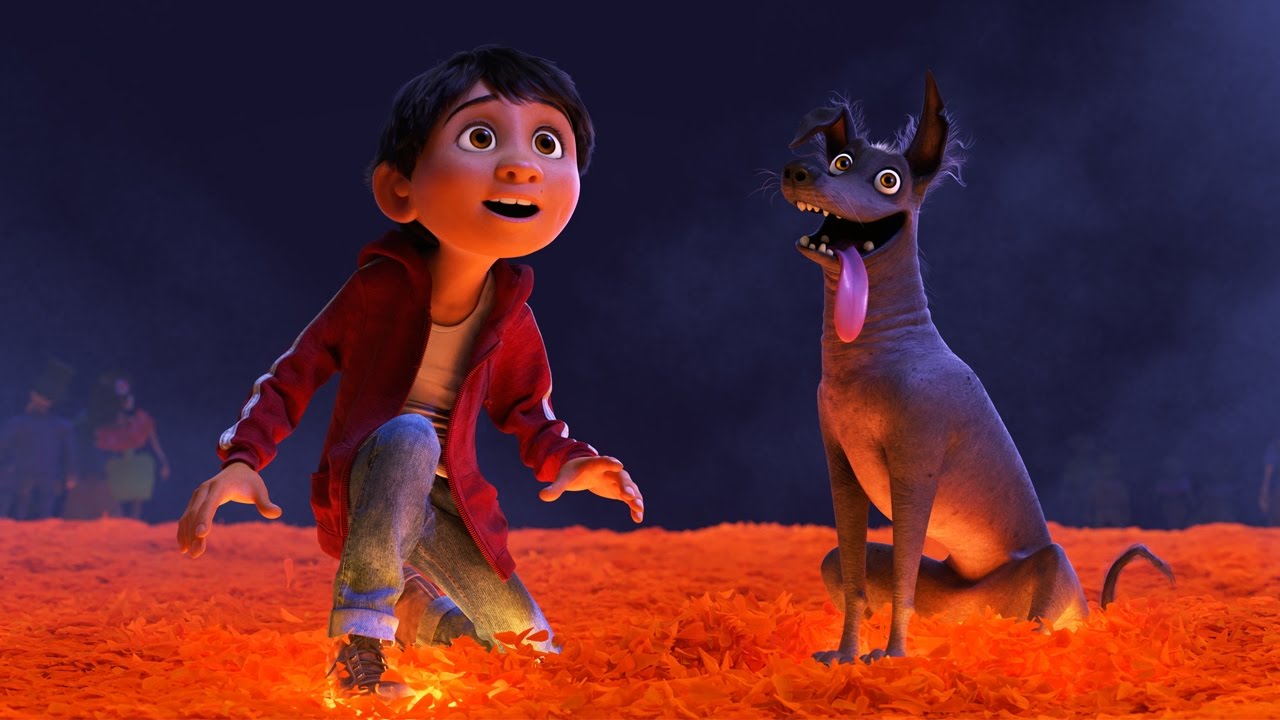
**Spoilers**
When I’d first discovered that the roster for Best Animation at the 2018 Oscars had included some rather sub-par Hollywood-based productions such as Dreamworks’ Boss Baby and Blue Sky’s Ferdinand that were competing alongside some visually innovative and even ground-breaking international releases such as the spectacular UK-produced Loving Vincent, along with Cartoon Saloon’s 2017 production: The Breadwinner, I was somewhat disillusioned.
I hadn’t heard anything spectacular about Ferdinand when it was released around Christmas 2017, that is, if you don’t count professional wrestlers portraying anthropomorphic bulls as stellar filmmaking, and I’m quite certain that Boss Baby had achieved a ‘so-bad-it’s-good’ memetic status to rival that of 2007’s Dreamworks flick, Bee Movie. At the time, I was under the impression that the ‘experts’ at the Academy had little to no appreciation for animation as an artistic medium as opposed to infantile gross-out comedies to keep dribbling children quiet. And at that point, it fell on the shoulders of Pixar’s latest feature, Coco, to potentially be the saving grace of Hollywood-produced digital animation at the 2018 Academy.
Prior to viewing the film, I had heard that Coco’s director and Pixar’s Editorial and Layout Vice-President, Lee Edward Unkrich has had a storied history in digital animation as a long-time veteran member of the creative team at Pixar, having been involved in a significant chunk of Pixar’s filmography, From Toy Story to The Good Dinosaur. What had me most interested, however, was his direction of Toy Story 3, a universally acclaimed production owing to its relative sentimentality and darker themes of loss and abandonment compared to its predecessors, and it had me wondering if Coco would explore similar mature themes.
Through Coco, Unkrich had woven an intricately animated tapestry of emotionally provocative and imaginative storytelling, with a thoughtful and affecting exploration of family, culture, remembrance, loss and abandonment, through a vibrant, atmospheric and loving homage to Mexico’s Día de Muertos, visually comparable to the similarly-set 2014 production ‘The Book of Life’. A story of a family’s conflict that transcends the barriers of life and death, approached in an accessible, yet emotionally heartfelt narrative, accompanied by a fantastic musical score that were both catchy and appropriately rooted in the culture the film depicted as opposed to a shameless Adele cameo. The vibrancy of the film’s spiritual setting is most prominently illustrated through its tight, eye-popping beautiful visuals, atmosphere and character designs, enhanced by a varied palette of fluorescent greens, blues, yellows, and oranges. The emphasis on bright and splendorous colour gives off the impression that the Realm of the Dead is not a bleak or imposing graveyard or hellscape of sorts, but rather a lively, sprawling multi-tiered labyrinth of a city that rises from sea-level, connected by bridges, rising towers and various modes of transport and inhabited by equally colourful skeletal celebrities (including a particularly charming tribute to Mexican painter Frida Kahlo!) in a perpetual state of wild jamboree.
The first half of the film, however is when it’s at its weakest, introducing the audience to yet another tired and clichéd premise of a kid who wants to disobey and run from his strict family and hides secrets from them for such-and-such reason, looks up to a popular celebrity and musician, goes on a wacky adventure through a Miyazaki-esque wonderland and discovers many predictable plot points about his family along the way. Not to go into spoiler territory but as you watch the film, it becomes very easy to point out the obvious plot developments and character arcs that we’ve already seen time and time again in past Disney productions, to the point that it almost becomes a drinking game, a similar problem shared by Moana. Not to say that some of these aren’t well-executed or enjoyable, but it had resulted in several instances of stale characterisation and ultimately predictable plot elements that dragged down the overall narrative and characters in places. The comic relief, taking the form of a Mexican hairless dog named Dante, while not nearly as insufferably vapid as that rooster from Moana, was still a relatively unfunny and unremarkable addition to an otherwise likeable, albeit formulaic cast. These are all minor personal gripes, however that did little to affect my overall enjoyment of the production, although it would be nice to see a contemporary Disney animated production that wasn’t so reliant on repeating tropes and plot elements from previous works.
Where Coco truly shined in terms of emotional tenderness and heart, however, was during its final act which had provided a tear-jerking gut-punch of a final resolution, with a comparable level of emotional torque to that of Unkrich’s previous emotional climax in Toy Story 3 and even, Inside Out. Both a testament to and a permanent reminder that Pixar pulls no punches when it comes to dishing out sob-inspiring heartache to its audiences, no matter their age. The communication of its themes of familial loss, abandonment and forgiveness as well as cultural depictions of death and the afterlife was imaginative enough to offer children an accessible, yet cordial way to process and understand such themes without being talked down to. It speaks to its audience with tenderness and warmth, through both its music and final resolution, that a family’s unity and legacy transcends the realms of life and death. To paraphrase a line from Breaking Bad; ‘la familia es todo’ (family is all).
On a final note, it was a tremendous relief that I didn’t have to suffer through the notoriously dragged out and piss-poor Olaf short that had garnered this film an unfair reputation earlier in it’s release! Glad to know the execs were, at the very least, mindful of the overwhelming backlash it had received in the States, otherwise the 21 minute cynical, corporate franchise-expanding mess would have soured the otherwise fantastic taste and cheapened the sincerity of the heartfelt production that was to follow!
